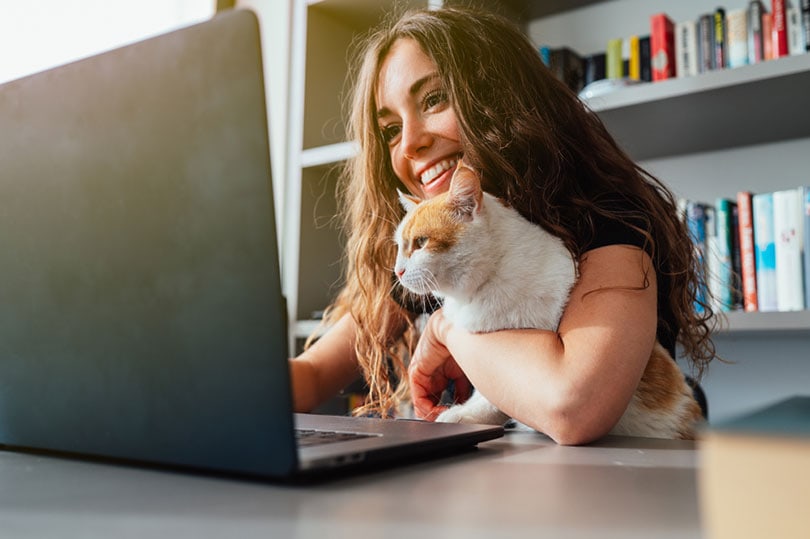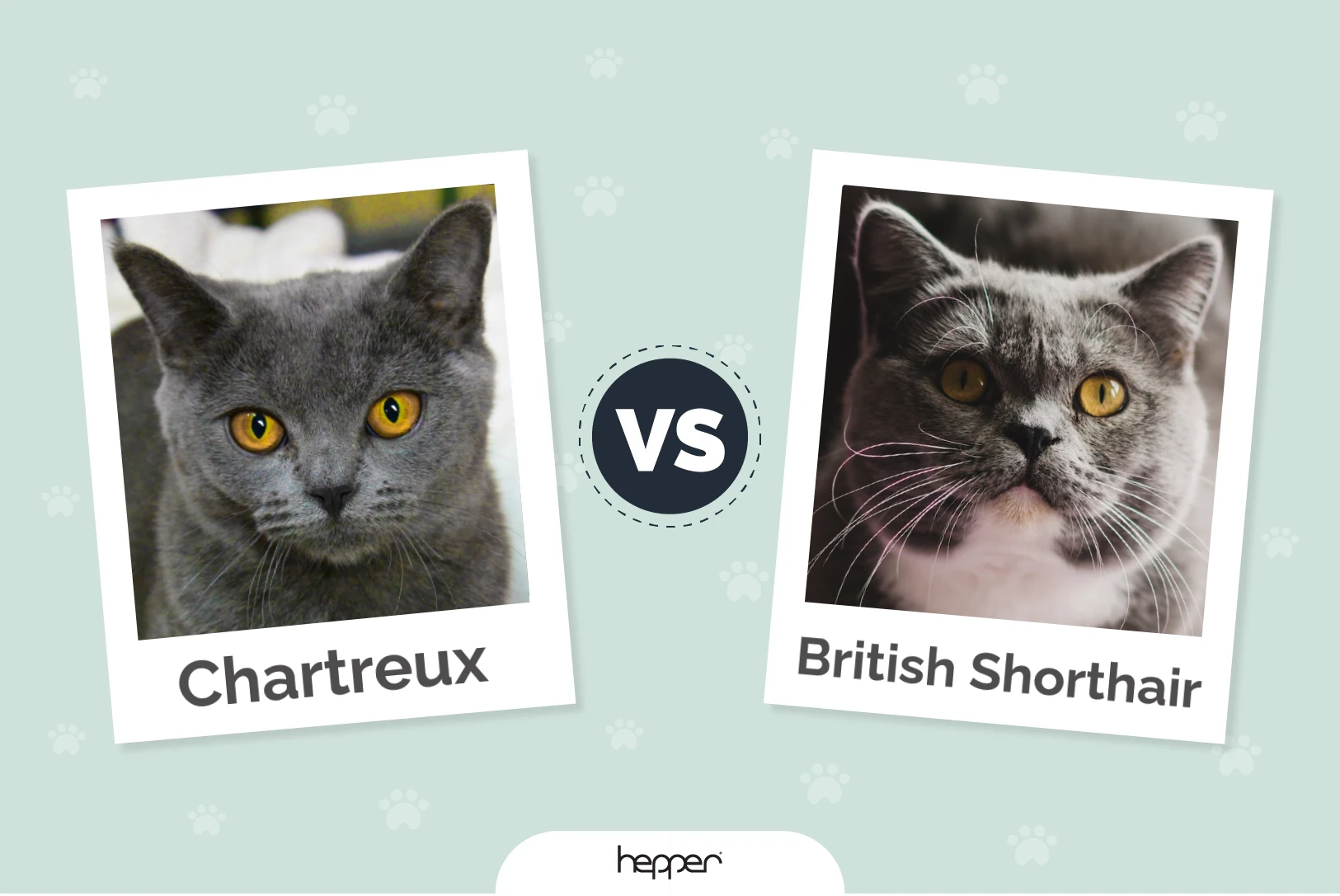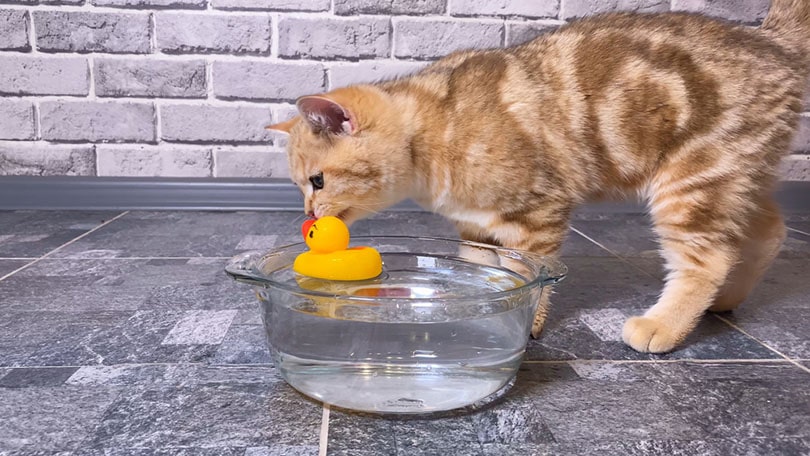Can Cats Eat Beets? Vet-Approved Health & Safety Guide

Updated on

Although cats are obligate carnivores, they can still eat small amounts of vegetables. Both raw and cooked beets are safe vegetables for cats to eat, although they’re unnecessary for their health. They also contain some nutritional benefits and can be a low-fat treat.
Although they shouldn’t take up the majority of a cat’s diet, beets can be tasty treats for cats. So, if you don’t mind potentially dyeing your cat’s fur red from crimson beet juice, you can safely serve up this vegetable as a snack.
 Are Beets Safe for Cats to Eat?
Are Beets Safe for Cats to Eat?
Beets belong to the Amaranthaceae family, which are plants that have edible roots and leaves. Other plants belonging to this family are swiss chard, sugar beets, and mangolds.
Cats can eat beets of all forms: raw, cooked, and dehydrated. However, they shouldn’t eat pickled beets. Pickling brine contains a lot of sodium, and cats that intake too much salt can experience elevated sodium levels. The brine can also include garlic, which is toxic to cats.
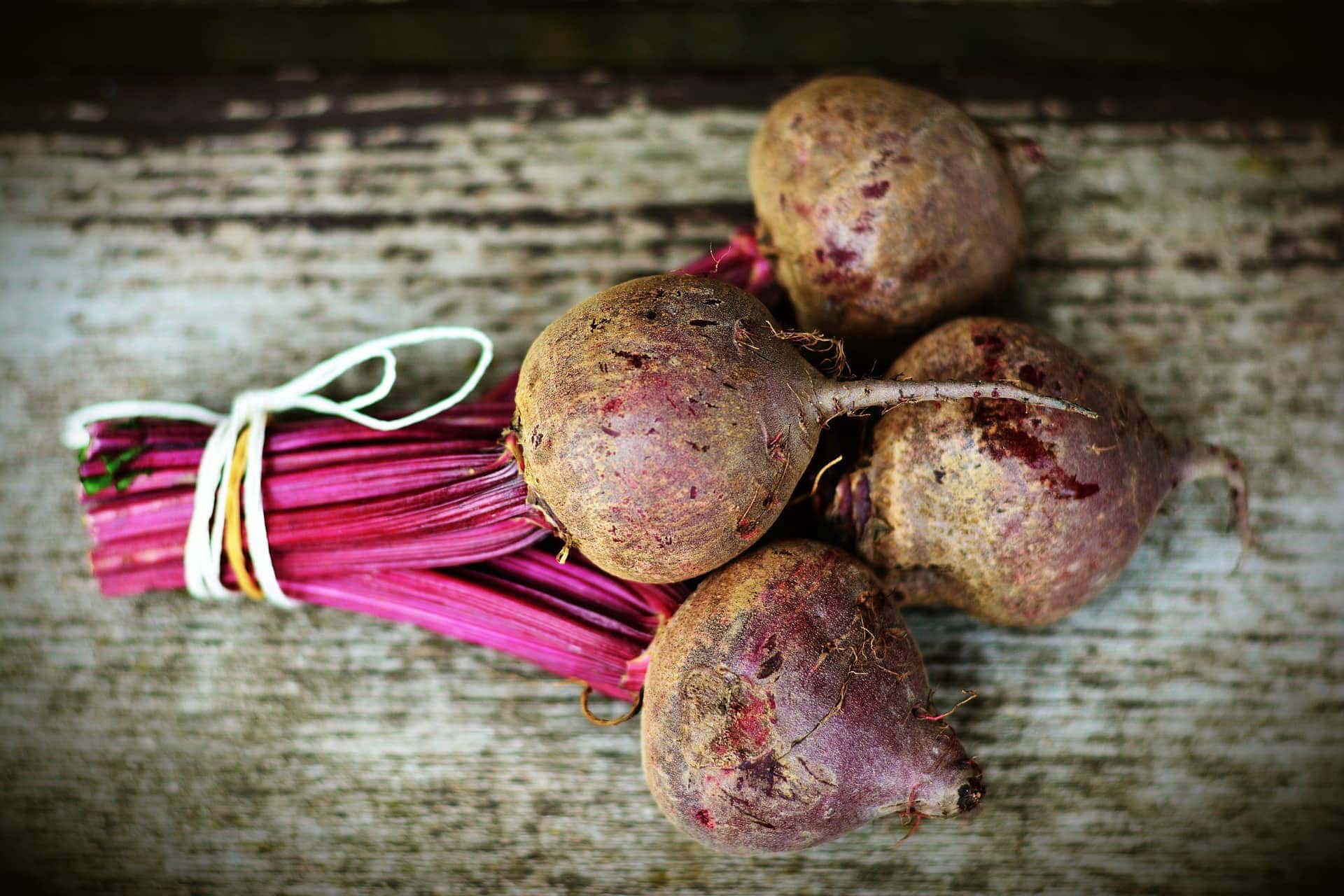
Nutritional Benefits of Beets
- Folate
- Manganese
- Potassium
- Iron
Potential Health Risks of Beets
Although beets are nutritious, cats shouldn’t eat too many of them because they have a higher sugar content than many other vegetables. As obligate carnivores, cats receive most of their energy from protein and fats. Carbohydrates aren’t as necessary for cats.
Cats won’t even enjoy the sweet taste of beets because they don’t have taste receptors that register sweetness. So, if you want to give your cat beets, make sure to only feed them as treats. They shouldn’t replace any meals or be served regularly. Also, cats that are overweight shouldn’t eat too many beets because of the high sugar content.
Beet greens also contain high levels of oxalates. In some cats, these oxalates can form into crystals, which then develop into kidney stones. So, cats with kidney disease or a history of bladder stones should avoid eating beets.
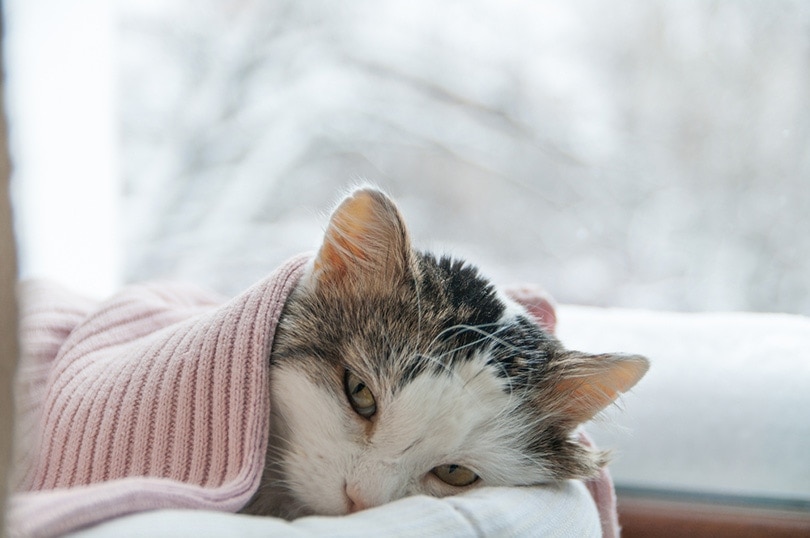
What to Do if a Cat Eats a Beet
For the most part, cats can eat small portions of beets without any problems. Beetroot allergies are extremely rare. However, cats can have sensitive stomachs and not be able to digest new foods very easily.
If your cat eats a piece of beet, keep an eye on its condition and look for signs of digestion issues.
- Vomiting
- Nausea
- Diarrhea
- Lack of appetite
- Lethargy
If your cat feels sick after eating a beet, monitor its condition for the next couple of days. Leave out plenty of water so that your cat can stay hydrated. If your cat has diarrhea, temporarily halt on feeding all usual meals. With your veterinarian’s recommendation, you can prepare a bland meal of boiled rice. A bland meal is easier for your cat to digest and helps to curb hunger. If sickness persists after 48 hours, take your pet to the vet.
Vegetables That Are Safe for Cats to Eat
Contrary to popular belief, cats can eat a variety of vegetables. If you want to give your cat a tasty and safe plant-based treat, here are some options:
- Fully cooked potatoes
- Spinach
- Carrots
- Broccoli
- Green beans
- Lettuce
- Squash
- Pumpkin
It’s important to note that cats cannot go on a vegetarian or vegan diet. They have essential vitamins, minerals, fats, and amino acids that they can’t produce on their own. They rely on animal protein to consume these nutrients, particularly taurine.
At the end of the day, cats are obligate carnivores, not omnivores like dogs and humans. Therefore, they need meat in order to survive and live a healthy life. A healthy diet for cats will consist of at least 26% protein sourced from animal meat.
Foods That Cats Should Avoid
There are some vegetables that humans can eat, but they’re toxic to cats. Whatever you do, make sure to keep your cats away from these vegetables and other common foods.
Avocados
Cats shouldn’t eat avocados because the skin and seed contain a toxin called persin. Persin typically causes mild irritation and can also make your cat vomit or experience diarrhea.
The seed is also unsafe because it’s slippery and sleek, so your cat can easily end up choking on it.

Garlic and Onions
Garlic, onions, and all other vegetables from the allium family are harmful to cats. These vegetables also include leeks, shallots, and chives. All forms of these vegetables are harmful, including cooked, dehydrated, and powdered forms.
You’ll mostly see the detrimental effects of these vegetables over time. If your cat consistently eats them, it’ll develop anemia.
Raw and Green Potatoes
Cats can’t eat raw potato peels because they contain solanine. Solanine is a natural pesticide that potatoes produce to defend themselves against insects. When cooked properly, solanine gets cooked off, so cats can eat plain boiled, steamed, or mashed potatoes.
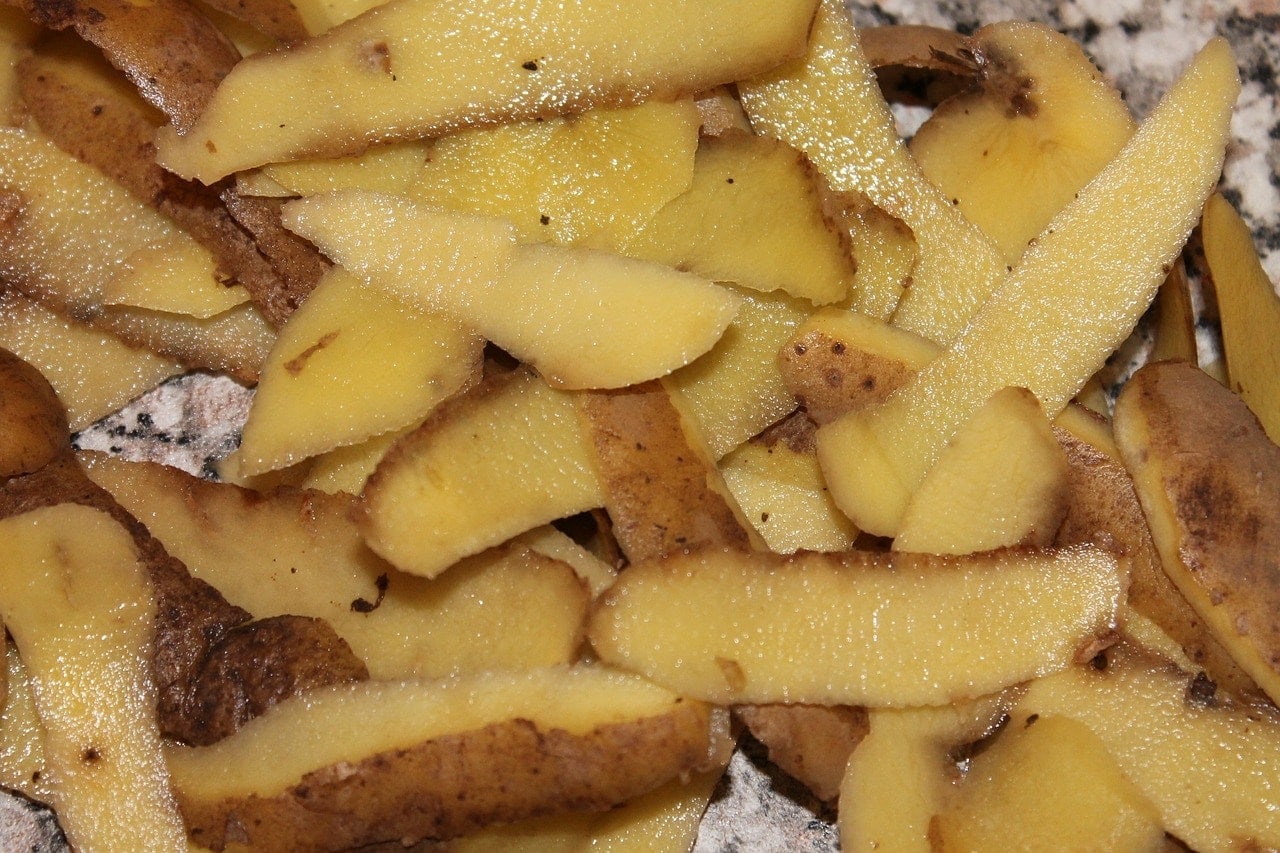
Green Tomatoes
Green tomatoes also contain solanine, including the plant vine. Like potatoes, cooked tomatoes are safe for cats to eat. In fact, a common ingredient in cat kibble is tomato pomace, which is used to bind the pieces of kibble together.
Chocolate
Chocolate contains a toxin called theobromine. This toxin is extremely harmful to cats and is most prevalent in dark chocolate and unsweetened baking chocolate. Consuming large amounts of chocolate can lead to seizures, labored breathing, and even death. Therefore, make sure to contact an emergency animal hospital right away if your cat eats chocolate.
Caffeine
Caffeine can cause serious problems for cats because it can raise their blood pressure and cause dangerous cardiac arrhythmias. Depending on how much caffeine your cat consumes, it can lead to mild signs, such as temporary hyperactivity, or have fatal consequences. Therefore, cats shouldn’t drink any coffee, tea, or sodas.
Now that you know what you can safely feed your cat, it’s just as important to find a bowl that supports their health and well-being. With whisker-friendly bowls and a wide tray to catch any spills, our Hepper NomNom Cat Bowl is our favorite option.
 Wrapping Up
Wrapping Up
Cats can eat beets and many other root vegetables. However, they should avoid eating garlic and onions. Vegetables should be used as occasional treats for cats. They should never make up the majority of a cat’s diet because cats need meat protein to survive and thrive.
See Also:
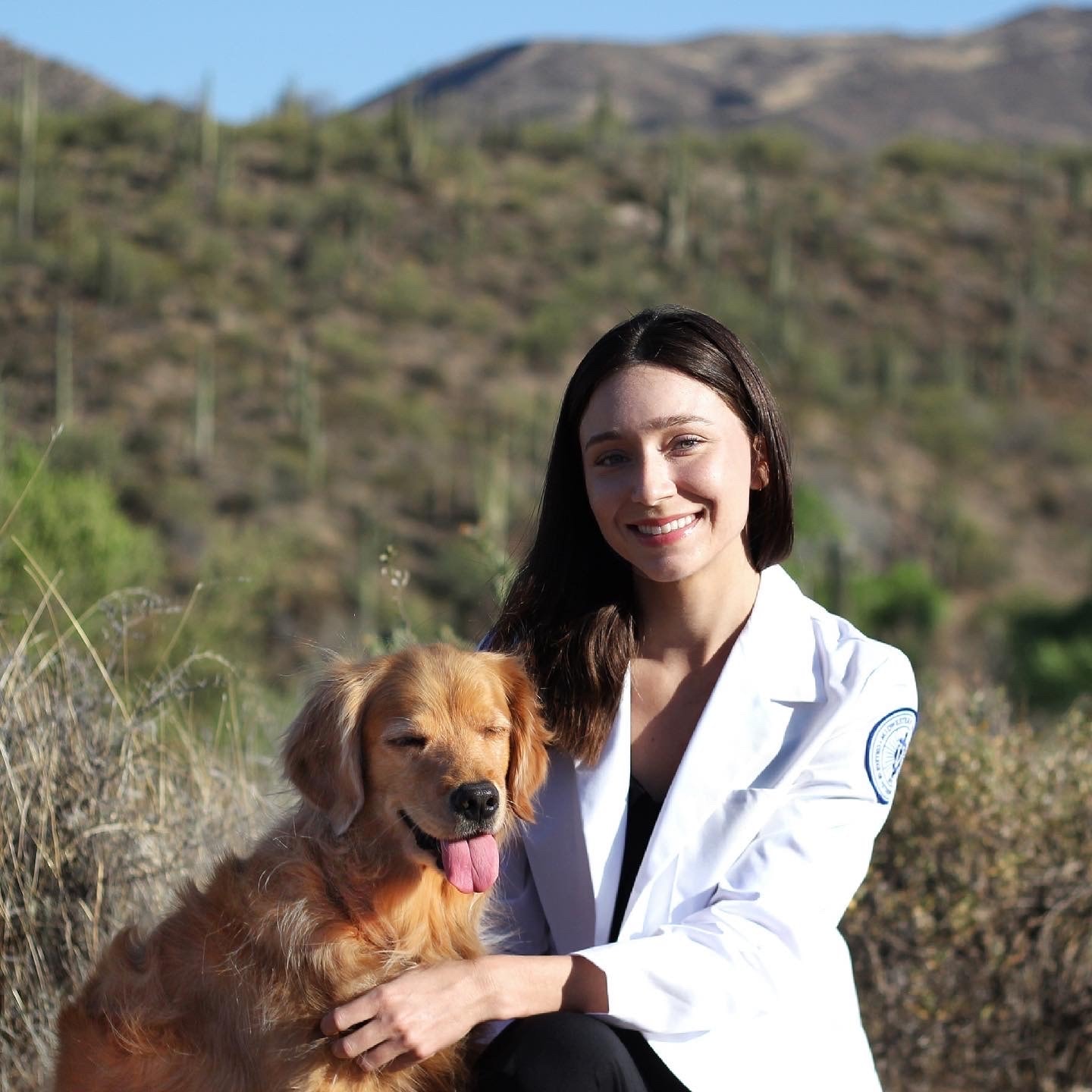
 Are Beets Safe for Cats to Eat?
Are Beets Safe for Cats to Eat?
